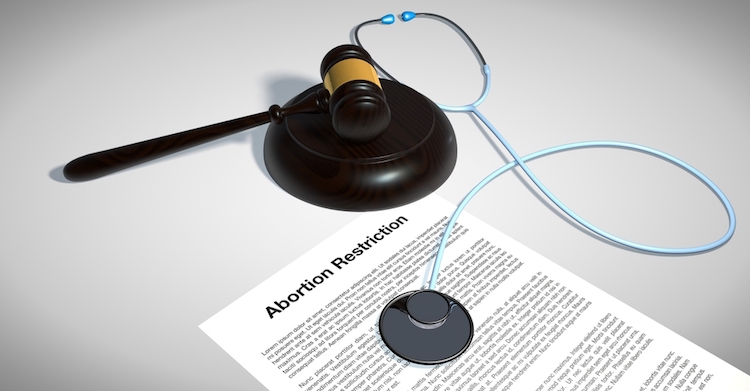Supreme Court will hear Texas abortion case on expedited basis but refuses again to block the law

Image from Shutterstock.
The U.S. Supreme Court on Friday agreed to hear two challenges to the Texas abortion law on an expedited basis and set oral arguments for Nov. 1.
The high court, however, left the Texas law in place, the second time that it has refused to block the law pending resolution of the legal challenges. In a partial dissent, Justice Sonia Sotomayor agreed with the court’s decision to grant cert but disagreed with its refusal to enjoin the statute.
“For the second time, the court is presented with an application to enjoin a statute enacted in open disregard of the constitutional rights of women seeking abortion care in Texas,” she wrote. “For the second time, the court declines to act immediately to protect these women from grave and irreparable harm.”
Sotomayor called the law “patently unconstitutional.”
Politico, the Washington Post, the New York Times and the National Law Journal have stories on the court’s action Friday.
The court will hear legal challenges filed by the U.S. Department of Justice in United States v. Texas and by abortion providers in Whole Woman’s Health v. Jackson. The Supreme Court case pages are here and here.
The Supreme Court agreed to hear the cases, even though the 5th U.S. Circuit Court of Appeals at New Orleans has not ruled on the merits.
The law, known as SB 8, prevents abortions after a fetal heartbeat is detected, typically at about six weeks of pregnancy. The law relies on the general public, rather than the state, for enforcement. It authorizes lawsuits by private parties who may seek $10,000 in damages against anyone who aids an abortion.
The Nov. 1 argument will take place about a month before the Supreme Court hears arguments in a challenge to a Mississippi law that bans most abortions after 15 weeks of pregnancy, Politico points out.
Mississippi has urged the Supreme Court to overturn Roe v. Wade. Lawyers for Texas also said the abortion-rights decision should be overturned in a Supreme Court filing Thursday but said legal challenges could be rejected without such a ruling.
The Supreme Court appears to be limiting its decision in the Texas case to challengers’ ability to sue.
The court framed the question this way in the federal government’s case: “May the United States bring suit in federal court and obtain injunctive or declaratory relief against the state, state court judges, state court clerks other state officials, or all private parties to prohibit SB 8 from being enforced?”
In the challenge by abortion providers, the petition for cert before judgment asks the Supreme Court to decide “whether a state can insulate from federal-court review a law that prohibits the exercise of a constitutional right by delegating to the general public the authority to enforce that prohibition through civil actions.”
See also:
ABAJournal.com: “Convicted ex-lawyer files bizarre suit against doctor under Texas abortion law”
ABAJournal.com: “DOJ explores ways to challenge Texas abortion law; judge grants TRO against anti-abortion group”
ABAJournal.com: “How could the DOJ counter Texas abortion restrictions? Law prof suggests prosecution”
ABAJournal.com: “SCOTUS formally rejects request to block Texas abortion ban”
ABAJournal.com: “Abortion providers ask Supreme Court to block Texas heartbeat law from taking effect”
ABAJournal.com: “Conservative SCOTUS justices question abortion decisions but delay action on Mississippi’s viability cert petition”
ABAJournal.com: “Supreme Court should uphold precedent in Mississippi abortion case, ABA amicus brief says”



